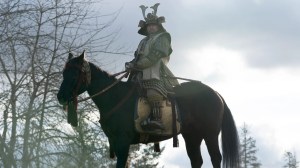Writer Edward Gross, who has previously written oral histories of John Wick and Stargate, is taking on the Man of Steel in his new book,Voices of Krypton. The book, out in early June, tells the story of the Man of Steel from his creation to the present day, where he is a beloved icon in comics, TV, film, and beyond. Few periods of Superman’s history are more widely read these days than the era in 1992 and 1993 when the character died, and was replaced by four new characters, each competing to be the “new” Superman, before the old one finally came back from the dead.
Videos by ComicBook.com
Nacelle Books, who are publishing Voices From Krypton, provided ComicBook.com with an exclusive excerpt from the book, which includes comments from creators, critics, and fans about the development of the Doomsday! story in which the Man of Steel fell, as well as Funeral For a Friend, which saw how the world went on without him; and Reign of the Supermen!, which brought him back and saw the birth of some of his best allies and enemies.
You can read it below. Please note, due to the length of the excerpt, we are starting with the beginning of the “Death and Return” talk, and not opening with an introduction from Gross, which is many pages earlier.
PETER SANDERSON: After a period of transition, there were four regular monthly Superman titles: Superman, Action, The Adventures of Superman and Superman: The Man of Steel, named after Byrne’s landmark miniseries. Still later, these would be joined by a fifth, quarterly title, Superman: The Man of Tomorrow. But despite all the creative energy at work, Superman’s sales went into decline once again. Byrne was gone and the revamping of Superman had already become old news, displaced by such phenomena as the sudden and spectacularly successful rise of new comics companies like Image. To recapture the attention of the comics audience, Carlin and DC decided to stage their own “event,” the now celebrated Death of Superman saga..
BRAD RICCA: I’ve always loved comics, but I did not like Superman. He was no X-Men in the ’80s, which was excellent all the time. I got into Superman, ironically, when they killed him. That set off this visceral thing in me that it did in so many, which is why it was such a brilliant move because it’s like, “You can’t do that!” That got me really into Superman.
ANTHONY DESIATO: I was five years old with my parents at the Galleria Mall in White Plains, New York at holiday time, and we were walking through the mall and there was a Heroes World store back then. And in their window display they advertised The Death of Superman. They had a Superman action figure and a toy coffin. I wish I had a photo of it or something like that… or that I remembered it more vividly. It was either a toy coffin, maybe to go with some kind of horror set or something like that, or just a little box that they repurposed. I’m not sure. But it was the action figure in a box meant to be a coffin. And I had enough of a sense of who Superman was just from having an action figure or seeing something on TV. So there was that connection point. And it just drew me in. And they bought me The Death of Superman trade paperback that DC put out instantly. My dad read it to me and that was it. Superman has been my favorite character ever since.
TOM DE HAVEN: I loved the Death of Superman. I was so invested in that when it was coming out like once a week and then he was going to come back. I was fortysomething years old at the time, but I felt like I was 12 years old again. Just brilliant. The guy who edited the Superman books in those days, Mike Carlin… I loved him. I love what he did; he did a really good job with the character in those days. I felt emotionally invested in it and was surprised at how emotionally invested I was.
ANTHONY DESIATO: One of the big things I was trying to answer for myself is what impact does it have when your introduction to a character is that character’s death? And the fact that he’s then off the board for much of the next year. The impact of that specifically was, you get to learn a lot about who he was through the way he’s remembered by the remaining characters, and everything is so heightened because of that grief. That just sort of mythologized him even more in my head based on the way everyone was remembering him in the pages of the comic. So I think there was a little bit of that. And even in the pages of the Death of Superman itself, and in fairness, we weren’t dealing with the All-Star lineup of the JLA that we would get later. This was sort of the “B” list, but the fact that everyone else fell, he was the last one standing, he was the only one who could hold the line and stop Doomsday, the only one who could go the distance and was willing to go the distance, and make that ultimate sacrifice that even as a little kid that had an impact.
ALAN BURKE: I don’t think there is a single Superman reader of my generation who does not remember where they were as that saga unfolded in 1993. And while yes, it’s a toe-to-toe brawl between Superman and Doomsday, all of those personal moments I love are there too. Many people consider Doomsday to be a dull character — the word character perhaps even being too strong. He is a behemoth, a mindless beast with one thing on his mind: destruction. I disagree. It’s what Doomsday represents that fascinates me. He is, for lack of a better analogy, Superman’s Kobayashi Maru. He is Clark’s unwinnable situation. It’s easy to be perpetually courageous when one is invulnerable. It’s easy to stand up and do the right thing when no matter what happens, you know you’re going home at the end of the day. But what does a person do when the right thing means not coming home?
ANTHONY DESIATO: Certainly as I’ve gotten older, as I’ve thought about it, and I’ve gone back to it, that ability and willingness really sets him apart. And then, the fact that he has the power of a God yet chooses to use his powers in the way he does. And I know that’s not necessarily anything groundbreaking. I think for a lot of fans, that’s probably what it comes down to, but for me, it’s certainly the choice to use his powers the way he does.
ALAN BURKE: As a police officer, now blessed with a young family, the question of not coming home often crosses my mind. What would I do in that situation? What would I have done if I had been one of the officers present at scene on 9/11? Would I have walked up those stairs knowing that I probably would not walk back down? Would I do the right thing in the face of almost certain death? Would Superman? That’s the question that makes the Death of Superman so personal to me, and it’s why it’s one of my favorite storylines.
ROB O’CONNOR: World Without a Superman was the first graphic novel I owned, and while Superman is barely in it (death will do that to you) and the storyline is long and meandering, it does a really interesting job of showing how important Superman is to the world of Metropolis and the world at large. The image of Martha and Jonathan burying keepsakes on the farm, because they can’t attend the star-studded Metropolis funeral, is a powerful one.
MICHAEL BAILEY: People were genuinely interested to see how and why he died, but the death wasn’t the big part of that, because the next chapter was Funeral for a Friend, which was collected as World Without a Superman, and that was looking at his friends and loved ones dealing with his death. And then it moves into Reign of the Supermen, where you had four different characters that all represented parts of Superman, but showed ultimately why Clark is the only one that can be Superman. So I think it’s the epicness of it that keeps people coming back to it or keep people wanting to discover it. That era of creators did such a great job of making you care, not just about Clark and Superman, but about everybody in that book that has a storyline. So it’s not just Superman died and six months later he came back. Superman died and the world mourned, and then all of these people stepped in to try to be him. Ultimately one of them was a villain in disguise, but that’s beside the point. In the end, the one true Superman is back and suddenly you realize he’s important. For the general comic book audience, it literally took him dying and coming back for them to go, “Oh, he is necessary.”
MIKE CARLIN: People still seem to like what happened and that makes it really fun. It was also fun while we were doing it most of the time. Sometimes it was work, but it was mostly fun. When it became work was when we actually got more and more successful once the title started selling more and expanding. More and more things kind of leeched onto what was going on in our books. There was a point where there were three Superman books; John Byrne was writing two of them and drawing two of them, and Jerry was doing the third book. Then John Byrne decided he was done with his Superman ideas for the moment and we were suddenly down to two books. And we put Roger Stern on one of the titles, and Jerry Ordway stayed on his. When it was two guys, it really was our bright idea to kind of link these comics a little closer together. And it was really easy with two guys who were doing it by themselves, and one of them happened to be drawing his comic too, so that was even better. As that got more successful, the third title came back and Dan Jurgens joined our group. Then for a couple of years, Paul Levitz kept bothering me about where his fourth Superman book was going to be. And I was like, we do everything tied together. That’s like a weekly comic book. And there hadn’t been a weekly comic.
DAN JURGENS: We thought, even leading up to that, that we were doing a damn fine story. And that we were doing something unique, which was the concept of a weekly comic book, for the most part, and that we could tell people were loving it. I had an editor from DC come up to me and said, “You know, with what you guys are doing, it’s awesome. You are the best-kept secret in comics.” And I just said, “Well, what the hell? Why don’t you tell people about it?” And I think in that world, where everything was moving in comics very fast at that point because, when we first came up with the story, whether it was Todd McFarlane doing Spider-Man, or Jim Lee and Rob Liefeld, and those guys doing the X stuff, obviously all that stuff justifiably sold. And then, we came up with our story around the same time they were going off to set up Image. We didn’t know what they were going to do or how it was going to work or anything. And I just think that we were getting to the point where we wanted to do our “Oh yeah? We’ll show you!” kind of attitude. “We can do something like that too.” And when I say something like that, I mean do a story that gets attention. And by attention, again, we meant just within the comic world. You know, we’ll goose sales 25 to 50% or something like that — not 600%!
PAUL LEVITZ: We were doing good work, but the books were selling kind of middle of the road. What can we do? And then they came in with that storyline. Nobody expected it to be a phenomenon; we’d killed Superman before — a couple of times. But we got lucky and the news leaked on a slow news day — the world picked it up and decided we were serious and took it very seriously. And everybody got excited. And it’s a good story.
DAN JURGENS: We knew it wasn’t just another story. We knew we had come up with something that was going to be special, and hopefully powerful for readers. But when I say that, while we knew we had probably done something that would get us a bump in sales, we never could have seen it becoming the event that it did. The book Superman 75 came out, I think November 17, 1992. We planned the story in the first week of November 1991. That’s when we laid out each individual issue. We came up with Doomsday and the whole story; everything else up through Superman 77. At that time, we didn’t know how we would come back, when for sure we would come back. But we knew, just looking at our charts that we had put up on the board, we all felt very confident we had come up with a very special story. That’s how we always saw it. It wasn’t until later when the press found out, and marketing got involved, that it turned into what it did, which was a much bigger, more expansive event that just lit the fire everywhere and got everybody interested. There’s no way we ever could have guessed at that or foreseen it.
MIKE CARLIN: We just were doing our next story when we got to the Death of Superman. And if you’ve read comics for any length of time, you know that the death of the hero story comes around every now and then. And in fact, that already happened to Superman in previous generations, so we were not asked to do it. We were not scared to do it. We had an out, we knew the ending. The miracle to me is that after this happened, and the big success that it was, that they didn’t come to us and ask us to top it. They realized that it was an unusual thing. The marketing guys did not come up with this idea. This was just some people in a room who wanted to tell a story. And we thought it was just the next adventure that Superman would hopefully survive, and he didn’t for a part of it. But then he did, ultimately. So he got better. And it kind of reminded people why they shouldn’t take Superman for granted, which was our personal frustration in the writing room — that people were liking the Punisher- and Wolverine-type murderer characters more than Superman, who we thought was a better role model. So we said, what would they think if he wasn’t there? And that was the motivation.
With a foreword by Brandon Routh and an afterword by Mark Waid, the book is more or less packed full of people passionate about the character of Superman. You can pick up a copy here.








